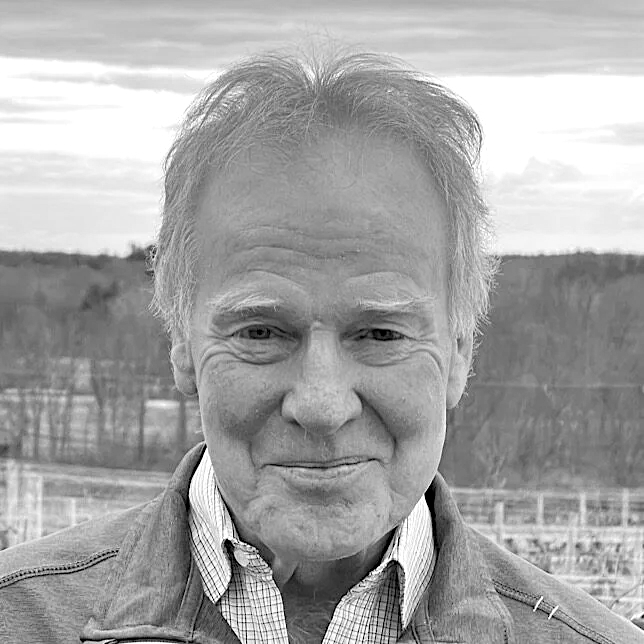
Systems Thinking for Real Change
Listen
Subscribe
In This Podcast
- Why systems thinking is essential for real, lasting change
- How leaders can embody and catalyze transformation
- The value of partnerships and collective intelligence
- Lessons from indigenous cultures on resilience and memory
- Why hope, courage, and relational space matter now more than ever
Dr. Peter Senge is a globally renowned pioneer in systems thinking, Senior Lecturer at MIT Sloan, and founding chair of the Society for Organizational Learning. Peter’s groundbreaking work—most notably his influential book, The Fifth Discipline—has shaped how leaders and organizations around the world approach learning, change, and sustainability. With decades of experience bridging business, academia, and indigenous wisdom, Peter brings a unique perspective on how we can foster meaningful transformation by embracing interdependence, collaboration, and the deeper human journey of leadership.
Show Notes
In this episode, Vesna welcomes Dr. Peter Senge, renowned MIT Sloan lecturer and pioneer of systems thinking, to the Corporate Unplugged Podcast. Peter explores why true change requires a shift in how we see interdependence, not just in business but in society at large. Drawing from decades of work with organizations and indigenous communities, he explains how deep, sustainable transformation starts with cultural and institutional shifts—far beyond quick fixes or policy tweaks.
Why Systems Thinking Is Essential for Our Time
Peter believes our era is defined by interdependence. He explains that every action—from charging a phone to choosing what we eat—ripples across the globe, often with consequences we fail to see. Our material footprint, especially in wealthier nations, is immense, and the resulting challenges—climate change, migration, and inequality—are deeply interconnected.
Senge argues that most of us react to these global issues as if they are external problems, disconnected from our own choices. Yet, the reality is that our daily lives are woven into the fabric of these challenges. “We live in each other’s backyards,” Senge says, highlighting the urgent need for a systems perspective in how we live, work, and lead.
The Role of Institutions and Cultural Memory
While individuals can make a difference, Senge emphasizes that the greatest leverage for change lies within institutions—businesses, schools, civil society, and local governments. National politics, he notes, is often too constrained by short-term cycles to address generational problems. Instead, meaningful transformation requires shifts in the underlying beliefs and assumptions that shape our culture.
Senge draws inspiration from indigenous cultures, which have survived cycles of collapse by maintaining a “cultural memory” and a deep connection to the land. These societies offer valuable lessons in resilience and adaptation. In places like British Columbia, where indigenous communities remain vibrant, their wisdom is increasingly recognized as a guide for modern societies seeking to reconnect with nature and community.
Leadership as a Developmental Journey
True leadership, Senge insists, is not about hierarchy or charisma—it’s about becoming a better human being. Drawing from the Confucian tradition, he shares,
“To become a leader, you must first become a human being.”
Leadership is a developmental journey rooted in self-awareness, purpose, and service to others.
Senge’s experience shows that the most impactful leaders are those who focus on the growth and well-being of their people. He recounts the story of Roger, a manufacturing executive who profoundly shaped his understanding of leadership. Roger’s guiding principle was simple yet powerful: if he was going to spend five years leading a plant, he wanted every single person there to be better off because of his presence. This belief translated into concrete action—Roger invested in employee development programs, encouraged ongoing education, and created clear pathways for advancement, even in environments that were often tough and resistant to change.
Roger’s approach went beyond improving operational performance; it was about leaving a legacy of human growth. He saw leadership as an opportunity to elevate others, ensuring that his tenure was measured not just by productivity or profit, but by the personal and professional development of everyone on his team. This philosophy fostered a culture of trust, loyalty, and continuous improvement, demonstrating that organizational success is ultimately built on the quality and growth of its people. Senge highlights Roger as a real example of how leaders can use their influence to create lasting, positive impact—reminding us that true leadership is about service and stewardship, not just authority.
The Power of Relational Space and Collaboration
Innovation and transformation, Senge explains, flourish in what he calls the “relational space”—environments of trust, psychological safety, and authentic connection. Drawing parallels to indigenous ceremonies, he describes how groups can create a “generative social field” where something greater than the sum of its parts emerges.
Business leaders, Senge advises, should seek out partnerships—across supply chains, regions, and even with competitors. Pre-competitive collaboration, where rivals work together on shared challenges like education or sustainability, can drive systemic change that benefits all. These partnerships foster collective intelligence and amplify impact far beyond what any single organization can achieve alone.
What the World Needs Most: Hope, Honesty, and the Courage to Change
In a world marked by ecological, social, and institutional collapse, Senge believes the first step is to tell the truth about our situation. Yet, he cautions against despair. Hope, he says, is not naive optimism but a conscious choice to see possibility and act with courage, even in the face of uncertainty.
“Life requires us to step ahead in difficult things, where it could be painful, where we put ourselves at risk, but we have a sense of possibility, and that possibility gives us the courage.”
Senge encourages leaders and changemakers to start where they are: embody the change they wish to see, build partnerships, create environments of trust, and nurture hope. The path to real change is long and often uncertain, but it is also filled with possibility.
If the talk resonates with you, we’d recommend you listen to these episodes too:
- Amy Edmondson: Psychological Safety and Fearless Organizations
- Bob Chapman: Truly Human Leadership
- Rebecca Henderson: Bridging the Gap between Business and Humanity


